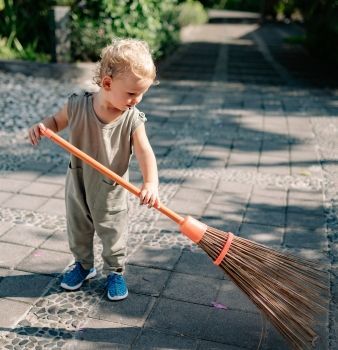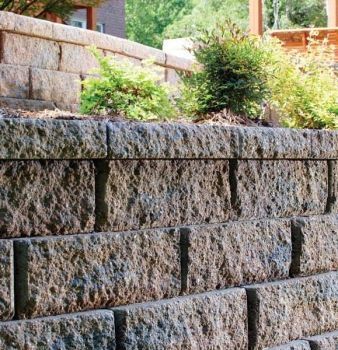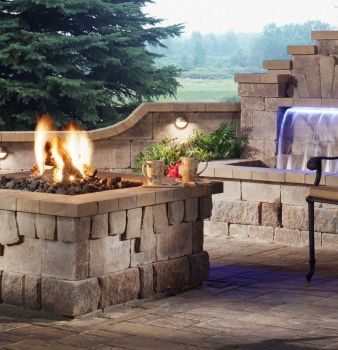HOW WINTER AFFECTS MY PATIO PAVESTONE
By Jeff Posted February 25, 2021


HOW WINTER AFFECTS MY PATIO PAVESTONE
By Jeff Posted February 25, 2021 In Blog
You may be planning a project to create a fabulous outdoor space, maybe a fireplace and kitchen. You think of all the good times unwinding by your outdoor fireplace and chimney. You see the mild evenings and cool summer mornings your new outdoor space was made for (and you deserve, by the way).
What you might not spend much time thinking about is how the materials used to create your sweet new space will hold up in the colder months. Will the winter wear down your outdoor patio?
COLD WEATHER IMPACT ON YOUR OUTDOOR PATIO
Yes, it’s true that the cold weather does affect the stone and brick in your outdoor patio. The freeze-thaw cycles in the winter months are just what you’d expect – moisture inside the mortar joints or in the ground underneath pavement will freeze and thaw out.
When the temperature falls below 32 degrees Fahrenheit and the moisture freezes, it expands. Then, of course, when it thaws, it contracts. The repeating of this process is what can lead to damage, mostly in the form of cracks in concrete, brick, and stone.
We see this in poured concrete because of its rigid nature. In the expanding and thawing cycle, poured concrete has little ability to move. When it can’t move or flex, cracks form.
The good news is that the higher the quality of the brick, stone and pavement products you use, the better it will withstand the harsh winter cycles.
HOW QUALITY & CONSTRUCTION MAKE THE DIFFERENCE
Interlocking pavers might be the ideal choice for your outdoor patio. Interlocking pavers are flexible, whereas poured concrete is not.
The interlocking pavers allow some ‘give’ so that when the ground shifts because of the freeze, the pavers can every-so-slightly shift as well. Taylor Concrete carries the most carefully crafted pavers from top-notch companies such as Belgard Hardscapes®, Cambridge Pavestones® and Techo-Bloc®.
The Interlocking Concrete Pavement Institute gives a thorough explanation of their findings on why pavers might resist winter damage best:
Compared to ready-mixed concrete, concrete pavers have the following advantages when exposed to freeze-thaw conditions and deicing agents:
- Stronger aggregate bonding from higher cement content than typically used in pavement quality ready-mix concrete;
- The high density of a paver limits deicing material from entering.
- Smaller aggregates (more surface area for the cement to bond);
- Lower water/cement ratio as well as vibration and compaction during the manufacturing process to increase aggregate-cement contact and to eliminate the possibility of over-watering;
- Produced in a highly controlled manufacturing plants leading to lower variation in material properties with the elimination of an over-finished surface; and
- Can be successfully installed in cold weather because they are properly cured before they leave the manufacturing plant.
Not only can high quality make the difference in how your beautiful new outdoor patio will hold up after winter weather, so does the quality of the construction and installation.
A well-constructed patio will have the correct base materials and installation techniques to withstand freeze-thaw cycles. But, patios not built properly, on the other hand, are more likely to crack under pressure – literally. So, whether you are hiring a contractor to do the work or making it a DIY cozy backyard project, don’t cut corners on your outdoor patio.
Choose high-quality pavestone, brick and stone for your project. You can rest easy on those perfect fall evenings by your fire pit or outdoor chimney knowing you selected the right materials to get you through many years of enjoying your outdoor escape.
Belgard Hardscapes, Cambridge Pavestones, Concrete, Concrete Cracks, Freeze-Thaw Cycles, How Winter Affects My Patio Pavestone, Interlocking Pavers, Outdoor Patio Furniture, Outdoor Patio Ideas, Outdoor Patio Set, Patio Damage, Patio Pavestone, Pavestone, Taylor Concrete, Techo-Bloc, Winter Weather Patio, Winter-Resistant Pavestone
RECOMMENDED POSTS







